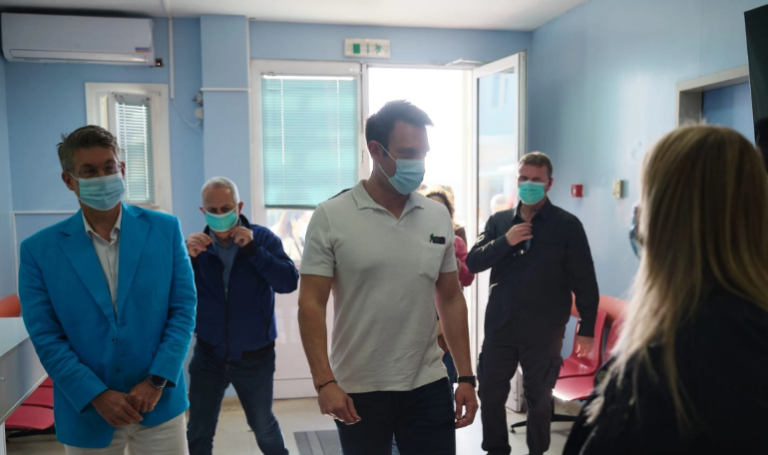Stefanos Kassalakis’ recent commitment to prioritise investment in public health, mentioning a 5% allocation of GDP to the sector, has faced criticism from the New Left accusing him of essentially proposing a reduction in healthcare expenditures. The New Left points out that in 2021, public health expenditure reached 5.7% of GDP and remained at similar levels in subsequent years, contrary to SYRIZA’s pre-election promise of 7.7% expenditure for public health.
Georgiadis: Kasselakis calls for reduction in healthcare
Initially, Mr. Kassalakis stated in his interview, that, “We need to invest in public health, and when we become government, the social state will be our top priority.” When asked about the percentage, he replied, “The percentage of GDP must be measured dynamically in that it’s not just about investing in health; it’s also about bringing it back to the community, therefore, it should be at least 5% in that invest in health can bring both decentralisation and development.”
Nea Aristera: Each time Kasselakis speaks his profound ignorance is revealed
Following Kasselakis’s statements, New Left in a statement expressed that each time Mr. Kasselakis speaks extensively about his program, his profound ignorance is revealed with regards to the needs of Greek society and his party’s agenda. Nea Aristera went further to comment that Kasselakis’ Greek dream is the flip side of New Democracy’s policy.
New Left criticised Stefanos Kasselakis for advocating a minimum of 5% of GDP for public health investment accusing him of being unaware of the actual state of public health under the Mitsotakis government’s policies. They argued that Kasselakis not only fails to fulfill his party’s previous promise of 7.5% public health expenditure but also neglects the current spending levels due to policies that have led to the dissolution and underfunding of public health and the NHS. New Left highlighted that while public health expenditure reached 5.7% of GDP in 2021, it has remained stagnant at inadequate levels in subsequent years, failing to meet societal needs. They concluded by saying that Kasselakis effectively proposes reducing public health spending to levels even lower than the current ones.
Ask me anything
Explore related questions





